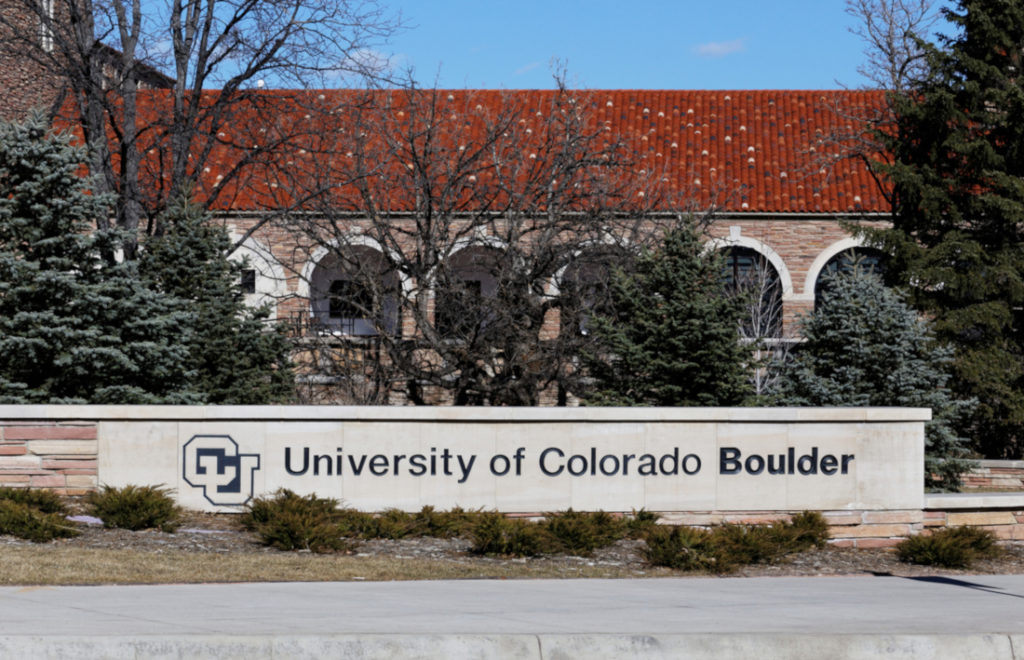By Jeffrey A. Roberts
CFOIC Executive Director
Rejecting the University of Colorado regents’ interpretation of the open records law as “linguistic gymnastics,” a Denver District Court judge Friday ordered CU to produce the names and applications of six candidates interviewed for the president’s job that went to Mark Kennedy last year.
Judge A. Bruce Jones found that the board of regents violated the Colorado Open Records Act when it provided only Kennedy’s application to the Boulder Daily Camera in response to the newspaper’s requests for the names and application materials of all finalists.
Although Kennedy was the sole finalist named by CU, Jones concluded that six candidates should have been considered “finalists” under CORA and the Colorado Open Meetings Law. The open meetings law requires “the list of all finalists under consideration” for a chief executive position be made public no later than 14 days prior to the appointment of one of the finalists.

“Under the plain and ordinary meaning of the statutes, there were more than one finalist for the 2019 CU President position,” Jones wrote. “The Court reaches this conclusion by reading the statutory text consistently, harmoniously, and sensibly.”
The regents’ interpretation, the judge added, “conflicts with the plain and ordinary meaning of several words and phrases in CORA. Frankly, it is difficult for this Court to avoid concluding that the Board’s interpretation is designed to justify a pre-determined outcome, rather than to align with the statutes.”
Jones accepted the interpretation of the Daily Camera’s lawyers, Robert Gunning and Eric Maxfield, who had argued that the Merriam-Webster dictionary definitions of plural words and phrases in CORA and the open meetings law were evidence of the state legislature’s intent that the names and applications of multiple individuals be disclosed.
The regents’ lawyers had pointed to a state statute, § 2-4-102, pertaining to how words and phrases are used in the laws. It says, “The singular includes the plural, and the plural includes the singular.” But Jones called it a “general principle of interpretation” and cited case law that “courts prefer to rely on a word’s plain, ordinary meaning where possible.”
“The General Assembly’s use of the plural form of ‘finalist’ reinforces its intent,” he wrote. “Common sense, not linguistic gymnastics, must be employed in interpreting statutes.”
CORA defines finalist as “a member of the final group of applicants or candidates” made public under the requirements of the open meetings law, and it allows the public to inspect most records submitted by a finalist. It adds: “If only three or fewer applicants or candidates for the chief executive officer position possess the minimum qualifications for the position, said applicants or candidates shall be considered finalists.”
The regents’ position that only one finalist may be disclosed when more than three individuals meet the minimum qualifications “is both illogical and inconsistent with this provision,” Jones determined. “If there are only three qualified candidates for an executive position and all three are finalists, it is reasonable to believe the legislature intended that state universities publicly disclose the records of more than one finalist when more than three candidates meet the minimum qualifications.”
Jones also considered the legislative history of provisions in CORA and the open meetings law affecting the public disclosure of chief executive finalists and their job applications. While amendments to the laws between 1994 and 2001 enhanced the confidentiality of non-finalist candidates, lawmakers still promoted “public scrutiny and input into this critical process.”
The judge further rejected CU’s argument that the Daily Camera’s interpretation is contrary to the regents’ standing in the Colorado Constitution and their statutory authority to elect a president. There is no question, he wrote, that the regents are subject to the state’s sunshine laws. “And if the way a public body conducts its business does not comply with its disclosure obligations, that body violates the sunshine laws.”
Under the judge’s order, the regents are to produce the names and application materials to the Daily Camera within 21 days and pay the newspaper reasonable attorney fees and court costs.
Asked for comment by the Colorado Freedom of Information Coalition, university spokesman Ken McConnellogue wrote in an email, “We have received the order, are digesting it and considering our options.”
Although the names and applications of the five finalists other than Kennedy have not yet been made public, The Colorado Independent in late December published a leaked list of 30 people who applied for the president’s job. The list included former Gov. Bill Ritter, former Lt. Gov. Donna Lynne, several other prominent Coloradans and the leaders of some large out-of-state colleges and universities.
Follow the Colorado Freedom of Information Coalition on Twitter @CoFOIC. Like CFOIC’s Facebook page. Do you appreciate the information and resources provided by CFOIC? Please consider making a tax-deductible donation.




